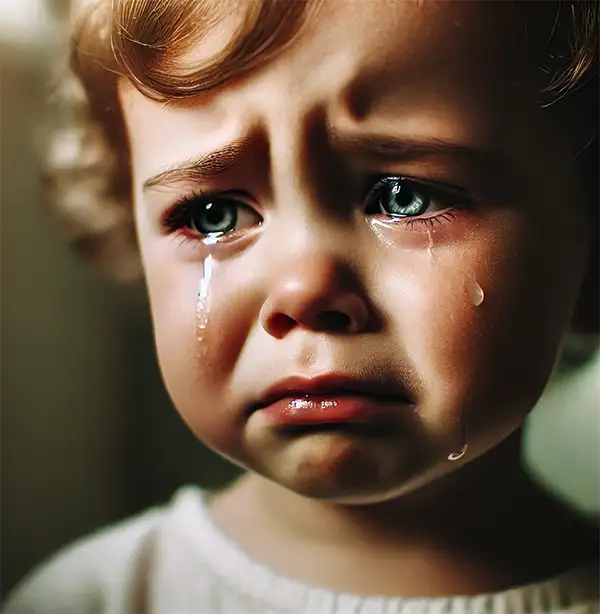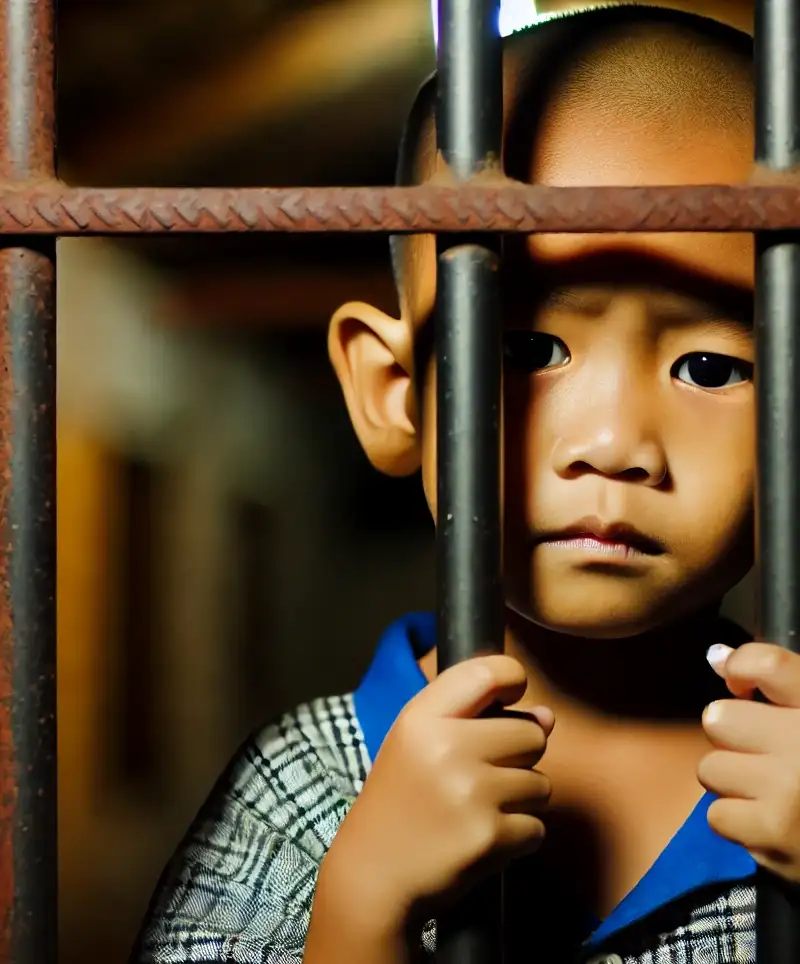Standing Up Against Child Abuse
National Be Someone Day, observed annually on July 21st, is a day dedicated to raising awareness about child abuse and encouraging people to take a stand against it. This day emphasizes the importance of individual actions in protecting children and creating a safer environment for them to thrive. It challenges each person to take ten seconds to make a difference in a child's life by reporting any suspicious activity or abuse they witness. Founded by the national organization Project Harmony, this day serves as a crucial reminder of the impact we can all have in preventing and addressing child abuse.
Understanding Child Abuse
Child abuse is a heartbreaking and pervasive issue that affects millions of children worldwide. It encompasses physical, emotional, and sexual abuse, as well as neglect. According to the World Health Organization, approximately one billion children globally experience violence each year. In the United States alone, the Centers for Disease Control and Prevention (CDC) reports that about one in seven children have experienced child abuse or neglect in the past year.
Physical abuse involves causing physical harm to a child through actions such as hitting, shaking, burning, or otherwise inflicting injury. Emotional abuse includes behaviors that harm a child's self-worth or emotional well-being, such as verbal abuse, rejection, isolation, or excessive criticism. Sexual abuse involves any sexual activity with a child, including fondling, rape, and exposing a child to sexual acts or pornography. Neglect is the failure to meet a child's basic needs, including food, shelter, clothing, medical care, and supervision.
The Impact of Child Abuse
The consequences of child abuse are profound and long-lasting, affecting every aspect of a victim's life. Physically, abused children may suffer from injuries that can lead to chronic health issues, such as brain damage, impaired growth, and long-term disability. These physical repercussions can also result in frequent medical visits and hospitalizations, disrupting their normal development and schooling.
 Emotionally and psychologically, the trauma from abuse can manifest as severe mental health disorders. Victims often struggle with depression, anxiety, post-traumatic stress disorder (PTSD), and suicidal thoughts. These mental health challenges can hinder their academic performance, social interactions, and overall quality of life. Children who experience abuse may have difficulty trusting others and forming healthy relationships, leading to isolation and loneliness.
Emotionally and psychologically, the trauma from abuse can manifest as severe mental health disorders. Victims often struggle with depression, anxiety, post-traumatic stress disorder (PTSD), and suicidal thoughts. These mental health challenges can hinder their academic performance, social interactions, and overall quality of life. Children who experience abuse may have difficulty trusting others and forming healthy relationships, leading to isolation and loneliness.
Behaviorally, children who have been abused are more likely to exhibit aggressive or self-destructive behaviors. They might struggle with substance abuse as a coping mechanism and are at higher risk of engaging in criminal activities. The instability and fear resulting from abuse can lead to difficulties in concentrating, learning, and maintaining consistent attendance at school, ultimately affecting their educational and career prospects.
The impact of child abuse doesn't just stop at the individual level. It extends to the community and society as a whole. The economic burden includes increased healthcare costs, legal expenses, and lost productivity. Furthermore, the cycle of abuse can perpetuate across generations if not addressed, with victims potentially becoming abusers themselves. By understanding and acknowledging these far-reaching impacts, society can better mobilize resources and support systems to prevent child abuse and assist survivors in their healing journey.
The Role of National Be Someone Day
National Be Someone Day is more than just an awareness campaign; it is a call to action. The day encourages individuals to take a proactive stance against child abuse by recognizing the signs, knowing how to respond, and understanding the importance of reporting suspected abuse. It aims to empower people to intervene in situations where a child might be in danger, ultimately creating a safer environment for children everywhere.
Recognizing the Signs of Child Abuse
Being able to identify the signs of child abuse is crucial for intervention. Some common indicators include:
- Physical signs: Unexplained bruises, burns, or injuries; frequent absences from school; wearing inappropriate clothing to cover injuries.
- Behavioral signs: Sudden changes in behavior or performance at school; withdrawal from friends or usual activities; signs of extreme fear or anxiety; aggressive or destructive behavior.
- Emotional signs: Excessive fear of certain adults; overly compliant or passive behavior; low self-esteem; delayed emotional development.
- Neglect signs: Poor hygiene; lack of appropriate clothing for weather conditions; untreated medical conditions; frequent absences or lateness to school.
Taking Action
National Be Someone Day encourages everyone to take just ten seconds to make a difference. Here's how you can take action:
- Report Suspected Abuse: If you suspect a child is being abused, it's crucial to report it to the appropriate authorities. In the U.S., you can contact the Childhelp National Child Abuse Hotline at 1-800-4-A-CHILD (1-800-422-4453).
- Educate Yourself and Others: Learn about the signs of child abuse and how to respond. Share this knowledge with friends, family, and community members to create a network of informed and vigilant individuals.
- Support Child Advocacy Organizations: Organizations like Project Harmony provide essential services to abused children and their families. Supporting these organizations through donations, volunteering, or advocacy can make a significant impact.
- Be a Positive Influence: Foster positive, supportive relationships with the children in your life. Be a role model and provide a safe, nurturing environment where they can thrive.
The Power of Community
National Be Someone Day highlights the importance of community in preventing and addressing child abuse. By working together, communities can create a protective network around children, ensuring their safety and well-being. Schools, healthcare providers, law enforcement, and social services all play vital roles in this effort. Community programs that support parents, provide education on positive parenting techniques, and offer resources for families in need can help reduce the risk of abuse.
National Be Someone Day is a poignant reminder that every individual has the power to make a difference in a child's life. By taking just ten seconds to act, whether it's reporting suspected abuse, educating others, or supporting advocacy efforts, we can all contribute to a safer and more nurturing environment for children. Child abuse is a complex and pervasive issue, but with collective effort and unwavering commitment, we can work towards a future where every child is protected, valued, and given the opportunity to thrive.
Please Share our Content






 Emotionally and psychologically, the trauma from abuse can manifest as severe mental health disorders. Victims often struggle with depression, anxiety, post-traumatic stress disorder (PTSD), and suicidal thoughts. These mental health challenges can hinder their academic performance, social interactions, and overall quality of life. Children who experience abuse may have difficulty trusting others and forming healthy relationships, leading to isolation and loneliness.
Emotionally and psychologically, the trauma from abuse can manifest as severe mental health disorders. Victims often struggle with depression, anxiety, post-traumatic stress disorder (PTSD), and suicidal thoughts. These mental health challenges can hinder their academic performance, social interactions, and overall quality of life. Children who experience abuse may have difficulty trusting others and forming healthy relationships, leading to isolation and loneliness.








 "Sláinte!" is a traditional Irish expression used as a toast, equivalent to "Cheers!" in English.
"Sláinte!" is a traditional Irish expression used as a toast, equivalent to "Cheers!" in English.